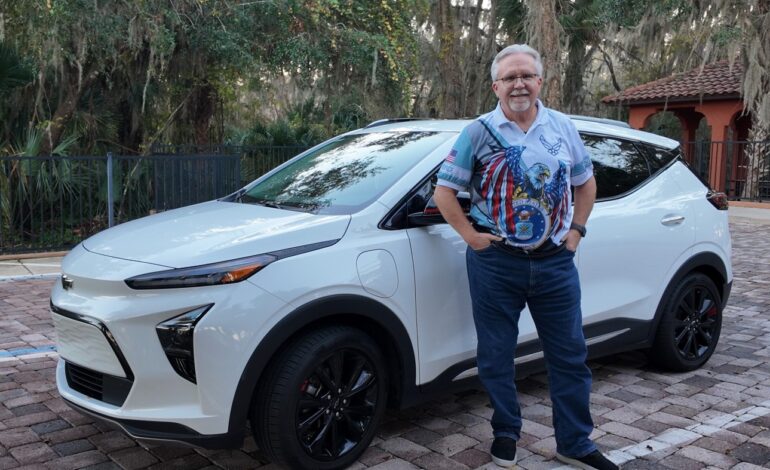Electric Vehicles: A Path to Energy Independence and Economic Growth

The recent decision by the U.S. federal government to phase out electric vehicle (EV) tax credits has raised concerns among advocates of energy security and economic resilience. With incentives like the $7,500 credit for new EVs and $4,000 for used models set to end for purchases made after September 30, 2023, many believe this could hinder the progress made in EV adoption and energy independence.
As a retired Air Force veteran, I have dedicated my life to protecting America’s security. In today’s landscape, that mission has evolved to encompass energy security, which is now closely linked to economic stability. The shift towards electric vehicles plays a critical role in reducing reliance on foreign oil, thus shielding families from the unpredictable fluctuations of gas prices. In regions like Orlando, where commuting and tourism are prevalent, fuel costs represent a significant household expense.
The appeal of EVs has surged, particularly in 2024, when Americans purchased a record 1.3 million EVs, largely fueled by the aforementioned tax incentives. Affordable options, such as the Chevrolet Equinox EV, have become attainable for many middle-class families. The absence of these financial incentives could slow down EV adoption, limiting consumer choices for affordable, energy-secure transportation.
The economic impact of EV sales extends beyond individual buyers. Thousands of jobs have been created across states such as Michigan, Georgia, and North Carolina, where automakers and battery producers have invested billions in building vehicles and establishing supply chains within the United States. The potential rollback of these incentives could jeopardize these important investments, leaving workers vulnerable in an evolving industry.
In contrast, countries like China are advancing their dominance in the EV sector through aggressive manufacturing and mineral processing strategies. The adoption of electric vehicles allows Americans to utilize domestically produced electricity, insulating them from global oil market shocks and stabilizing energy costs. Moreover, integrating smart charging technology can support a more reliable power grid, further enhancing energy independence.
As various industries, from shipping to manufacturing, electrify their operations, controlling domestic energy sources will be crucial for America’s economic strength. The U.S. has developed a dynamic EV supply chain, created thousands of well-paying jobs, and made strides towards reducing dependence on volatile global energy markets. Weakening the policies that have driven this progress risks losing the competitive edge that has been cultivated over recent years.
The choice before us is significant: to continue reinforcing American energy independence and affordability or to risk falling behind in a critical global race. Energy independence is not just an economic concern; it is a national security imperative. The decisions made today regarding electric vehicles will shape America’s leadership in energy and technology for years to come.
Supporting electric vehicles equates to championing a stronger, more secure, and affordable future for our nation. As citizens, we must advocate for policies that promote the continued growth and accessibility of electric vehicles. The future of American energy security depends on the actions taken today.






